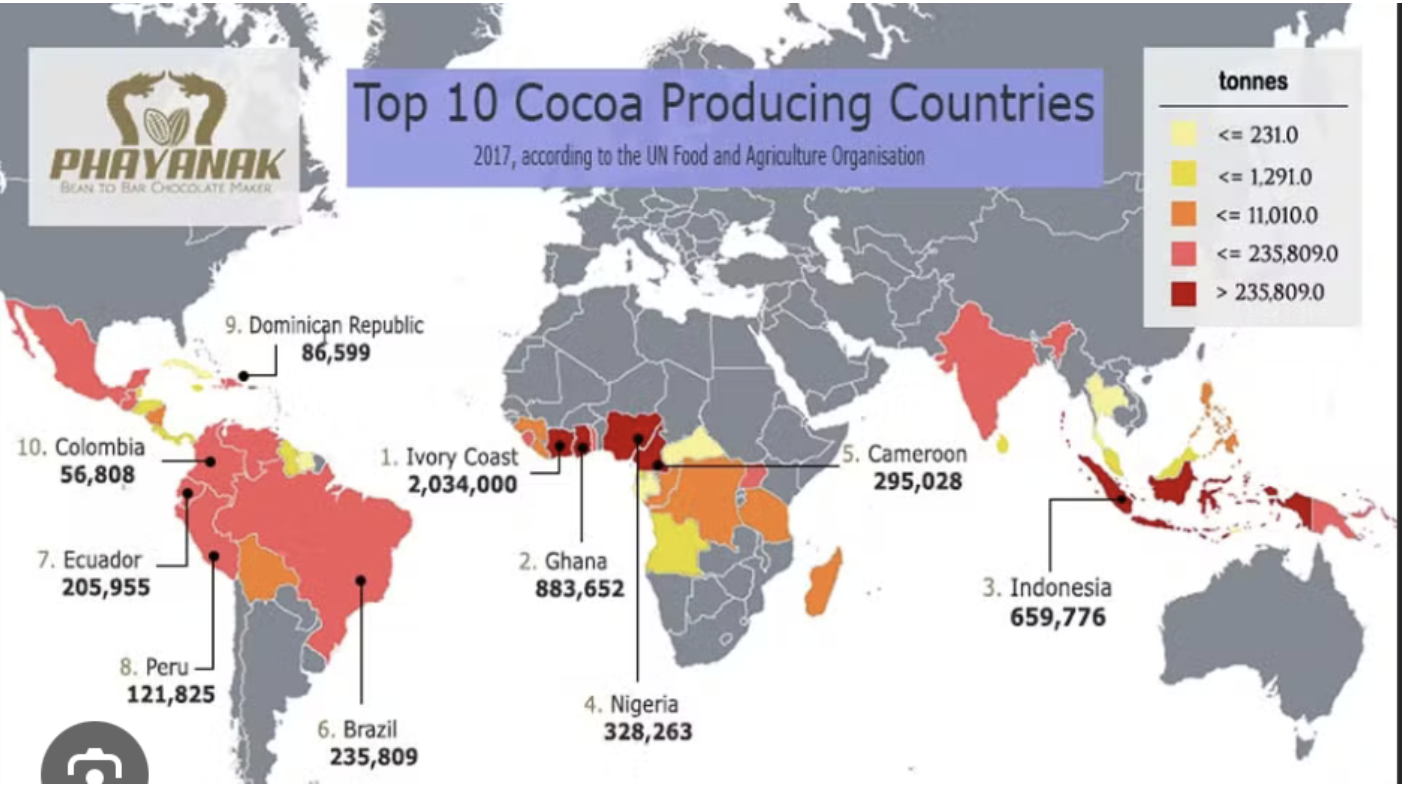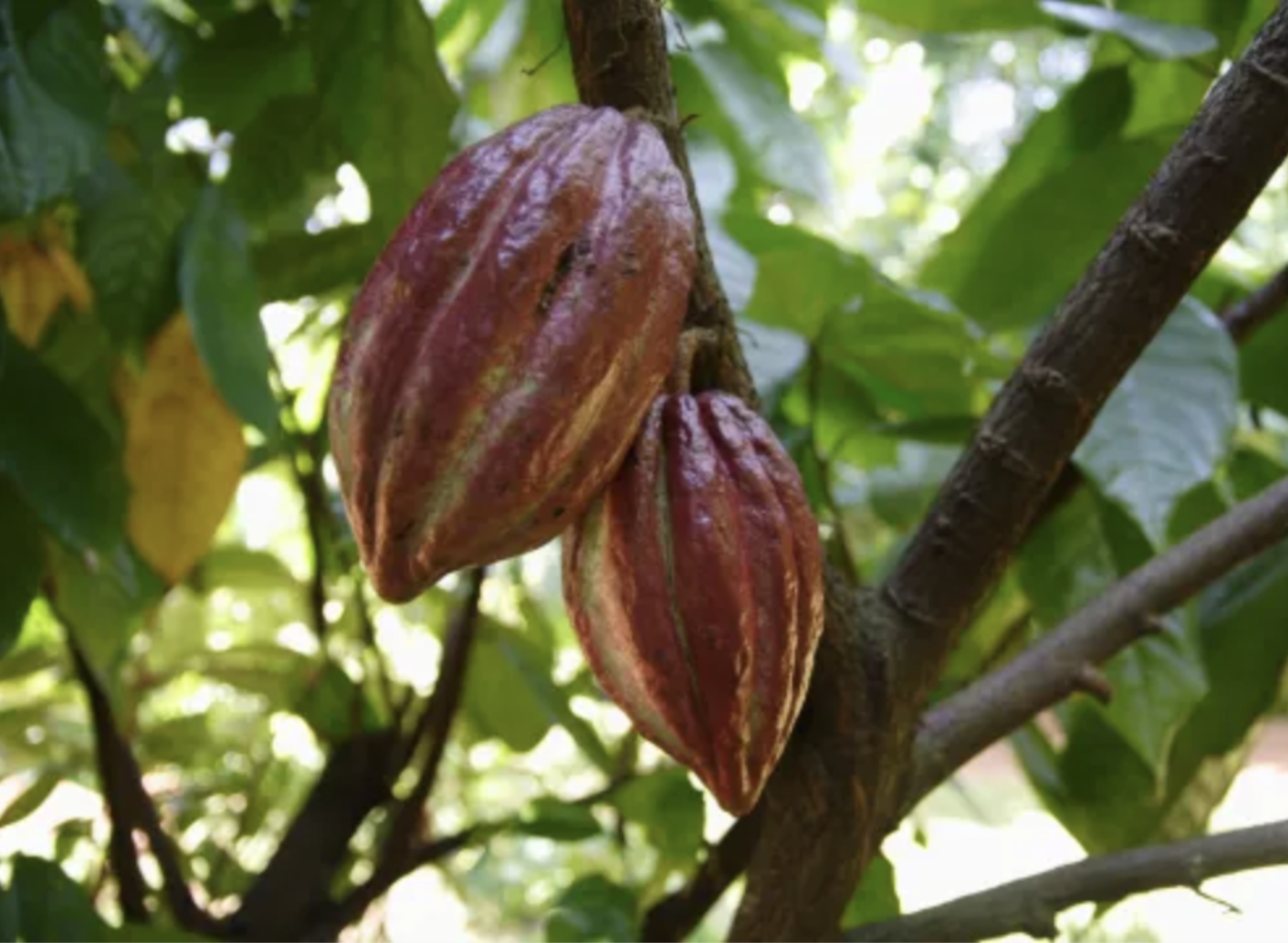October 13, 2023
(A WARMING CLIMATE IS BAD NEWS FOR THE CACAO TREE)
October 13, 2023
Hello everyone,
Does your morning routine involve a cup of coffee?
Well, be prepared. The warming climate will impact the price of those coffee beans you purchase. And ponder this - a dwindling production of chocolate may well be part of your future.

El Nino and climate change are bad news for coffee crops, which are highly sensitive to weather changes. Hotter temperatures and shifts in rainfall patterns can also damage cocoa pod development and promote the spread of pests and diseases.
The latest El Nino Southern Oscillation outlook does not look good. El Nino is expected to last from January to March 2024, with a 71% chance that it will intensify from November to January.
The knock-on effect of this is that greatly intensified and frequent El Nino could well reduce the amount of arable land for cocoa cultivation. The climate factor not only poses a threat to food security but also endangers the livelihoods of farmers. West African countries are particularly at risk from extreme weather changes.
Jonathan Haines, who is the research director at Gro Intelligence, points out that El Nino conditions “are often historically associated with drier conditions in West Africa where three-quarters of the world’s cocoa is produced.”
Africa accounts for 75% of global cocoa production, while the Americas, which includes Brazil and Ecuador, account for only 20%. Asia-Pacific produces the remaining 5% with Indonesia and Papua New Guinea being the largest producers in the region.
Cocoa comes from the seed of the cacao tree and is an essential ingredient for chocolates. But cocoa butter, which is a by-product of cocoa processing, is also widely used in the pharmaceutical industry for skincare products and cosmetics.
The financial damage of climate change will be costly for this soft commodity, since top cocoa producers like Ivory Coast, Ghana, and Indonesia, are vulnerable to extreme weather conditions. As profits from cocoa make up 70% to 100% of Ghanaian cocoa producers’ income, any decline in yields will have a substantial impact on their livelihoods. Climate change is also wreaking havoc in Indonesia where it is reducing productivity by 50%, leading to an estimated loss of $666 per hectare, affecting up to one million hectares.
Cocoa prices have already jumped significantly to “high premiums” according to the International Cocoa Organisation.
At the end of August, ICCO’s latest data showed that cocoa futures settled at $3,730 per tonne in London, and $3,633 per tonne in New York. That amounts to a 78% rise from $2,095 per tonne in London a year ago and a nearly 50% year-on-year rise from $2,427 per tonne in New York.
Prices of cocoa are at their highest in 50 years, according to a Reuters report.
Agricultural adaptation and mitigation efforts are some ways that farmers can tackle specific climate threats, but they are costly.
Private sector capital and non-profit initiatives can help alleviate the financial burden on cocoa farmers learning to adapt to climate change. The Rainforest Alliance, a non-governmental organisation, started the Restore project in Cote d’Ivoire and Ghana. The project has set aside $7 million to help 15,000 farmers manage 50,000 hectares of farmland and aims to expand tree cover in cocoa production landscapes across the two countries.
This year rain has helped ease the impact of drought to some extent in West African countries. The cacao tree thrives in humid rainforest-like conditions, relying on heavy rainfall close to the equator. But the threat of rising temperatures over the next three decades means a loss of moisture in the ground which scientists tell us will not be made up by rain. A temperature rise of just 2.1C over the next 30 years caused by global warming could spell an end for the chocolate industry worldwide, according to the US National Oceanic and Atmospheric Administration. In the face of climate change and changing weather patterns, ongoing adaptation efforts will be needed in agricultural land management if we are to maintain consistent production of soft commodities.
A world without chocolate and coffee – ugh!
Wishing you all a wonderful weekend.
Cheers,
Jacquie






